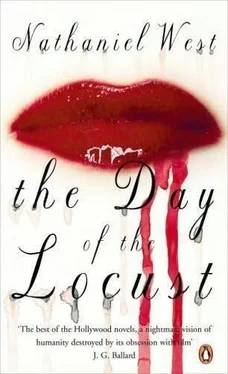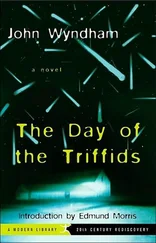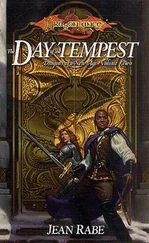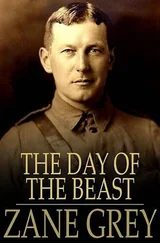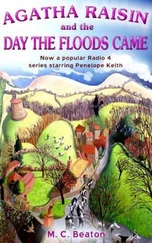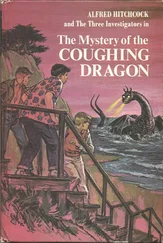For the French, a man in a checked cap ordered Milhaud’s cuirassiers to carry Mont St. jean. With their sabers in their teeth and their pistols in their hands, they charged. It was a fearful sight. The man in the checked cap was making a fatal error. Mont St. Jean was unfinished. The paint was not yet dry and all the struts were not in place. Because of the thickness of the cannon smoke, he had failed to see that the hill was still being worked on by property men, grips and carpenters.
It was the classic mistake, Tod realized, the same one Napoleon had made. Then it had been wrong for a different reason. The Emperor had ordered the cuirassiers to charge Mont St. Jean not knowing that a deep ditch was hidden at its foot to trap his heavy cavalry. The result had been disaster for the French; the beginning of the end. This time the same mistake had a different outcome. Waterloo, instead of being the end of the Grand Army, resulted in a draw. Neither side won, and it would have to be fought over again the next day. Big losses, however, were sustained by the insurance company in workmen’s compensation. The man in the checked cap was sent to the dog house by Mr. Grotenstein just as Napoleon was sent to St. Helena. When the front rank of Milhaud’s heavy division started up the slope of Mont St. Jean, the hill collapsed. The noise was terrific. Nails screamed with agony as they pulled out of joists. The sound of ripping canvas was like that of little children whimpering. Lath and scantling snapped as though they were brittle bones. The whole hill folded like an enormous umbrella and covered Napoleon’s army with painted cloth. It turned into a route. The victors of Bersina, Leipsic, Austerlitz, fled like schoolboys who had broken a pane of glass. “Sauve qui peut!” they cried, or, rather, “Scram!”
The armies of England and her allies were too deep in scenery to flee. They had to wait for the carpenters and ambulances to come up. The men of the gallant Seventy-Fifth Highlanders were lifted out of the wreck with block and tackle. They were carted off by the stretcher-bearers, still clinging bravely to their claymores.
Tod got a lift back to his office in a studio car. He had to ride on the running board because the seats were occupied by two Walloon grenadiers and four Swabian foot. One of the infantrymen had a broken leg, the other extras were only scratched and bruised. They were quite happy about their wounds. They were certain to receive several extra days’ pay, and the man with the broken leg thought he might get as much as five hundred dollars. When Tod arrived at his office, he found Faye waiting to see him. She hadn’t been in the battle. At the last moment, the director bad decided not to use any vivandières.
To his surprise, she greeted him with warm friendliness. Nevertheless, he tried to apologize for his behavior in the funeral parlor. He had hardly started before she interrupted him. She wasn’t angry, but grateful for his lecture on venereal disease. It had brought her to her senses. She had still another surprise for him. She was living in Homer Simpson’s house. The arrangement was a business one. Homer had agreed to board and dress her until she became a star. They were keeping a record of every cent he spent and as soon as she clicked in pictures, she would pay him back with six per cent interest. To make it absolutely legal, they were going to have a lawyer draw up a contract.
She pressed Tod for an opinion and he said it was a splendid idea. She thanked him and invited him to dinner for the next night. After she had gone, he wondered what living with her would do to Homer. He thought it might straighten him out. He fooled himself into believing this with an image, as though a man were a piece of iron to be heated and then straightened with hammer blows. He should have known better, for if anyone ever lacked malleability Homer did.
He continued to make this mistake when he had dinner with them. Faye seemed very happy, talking about charge accounts and stupid sales clerks. Homer had a flower in his buttonhole, wore carpet slippers and beamed at her continually.
After they had eaten, while Homer was in the kitchen washing dishes, Tod got her to tell him what they did with themselves all day. She said that they lived quietly and that she was glad because she was tired of excitement. All she wanted was a career. Homer did the housework and she was getting a real rest. Daddy’s long sickness had tired her out completely. Homer liked to do housework and anyway he wouldn’t let her go into the kitchen because of her hands.
“Protecting his investment,” Tod said.
“Yes,” she replied seriously, “they have to be beautiful.” They had breakfast around ten, she went on. Homer brought it to her in bed. He took a housekeeping magazine and fixed the tray like the pictures in it. While she bathed and dressed, he cleaned the house. Then they went downtown to the stores and she bought all sorts of things, mostly clothes. They didn’t eat lunch on account of her figure, but usually had dinner out and went to the movies. “Then, ice cream sodas,” Homer finished for her, as he came out of the kitchen.
Faye laughed and excused herself. They were going to a picture and she wanted to change her dress. When she had left, Homer suggested that they get some air in the patio. He made Tod take the deck chair while he sat on an upturned orange crate.
If he had been careful and had acted decently, Tod couldn’t help thinking, she might be living with him. He was at least better looking than Homer. But then there was her other prerequisite. Homer had an income and lived in a house, while he earned thirty dollars a week and lived in a furnished room.
The happy grin on Homer’s face made him feel ashamed of himself. He was being unfair. Homer was a humble, grateful man who would never laugh at her, who was incapable of laughing at anything. Because of this great quality, she could live with him on what she considered a much higher plane.
“What’s the matter?” Homer asked softly, laying one of his heavy hands on Tod’s knee.
“Nothing. Why?”
Tod moved so that the hand slipped off.
“You were making faces.”
“I was thinking of something.”
“Oh,” Homer said sympathetically.
Tod couldn’t resist asking an ugly question.
“When are you two getting married?”
Homer looked hurt.
“Didn’t Faye tell about us?”
“Yes, sort of.”
“It’s a business arrangement.”
“Yes?”
To make Tod believe it, he poured out a long, disjointed argument, the one he must have used on himself. He even went further than the business part and claimed that they were doing it for poor Harry’s sake. Faye had nothing left in the world except her career and she must succeed for her daddy’s sake. The-reason she wasn’t a star was because she didn’t have the right clothes. He had money and believed in her talent, so it was only natural for them to enter into a business arrangement. Did Tod know a good lawyer?
It was a rhetorical question, but would become a real one, painfully insistent, if Tod smiled. He frowned. That was wrong, too. “We must see a lawyer this week and have papers drawn up.” His eagerness was pathetic. Tod wanted to help him, but didn’t know what to say. He was still fumbling for answer when they heard a woman shouting from the behind the garage.
“Adore! Adore!”
She had a high soprano voice, very clear and pure. “What a funny name,” Tod said, glad to change the subject “Maybe it’s a foreigner,” Homer said.
The woman came into the yard from around the corner of the garage.
She was eager and plump and very American.
“Have you seen my little boy?” she asked, making a gesture of helplessness. “Adore’s such a wanderer.”
Читать дальше
